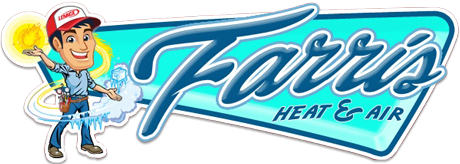
Significant changes are on the way for the heating and cooling business! Cooling systems transitioning from R-410a to newer refrigerants like R-454B refrigerant and R-32 refrigerant will be implemented in 2025. These new coolants are engineered to be friendlier to the environment and meet new regulations about global warming. But what does that mean for your present HVAC system and any new services?
This transition will reduce the environmental impact of our air conditioning systems. In 2025, new AC systems will employ a a different class of refrigerants that better align with climate goals. If you're considering getting an AC replacement soon, this is the opportune time to explore how these updates can affect your home's comfort.
Why Are They Phasing Out R-410a for New HVAC Refrigerant?
For years, R-410a was the preferred refrigerant for residential air conditioners because it worked so well. But analysis uncovered that R-410a still contributes to global warming. In response, the Environmental Protection Agency (EPA) established a strategy back in 2021. The industry will steadily discontinue R-410a to introduce refrigerants that are more eco-friendly.
The HVAC industry has undergone shifts like this before. When the industry phased out R-22 (commonly called Freon) to R-410a, property owners like you had to adjust. And in the same way, this transition will impact how systems are engineered as well as the best practices for HVAC maintenance. Both property owners and HVAC technicians need to plan for these new refrigerants if they wish to keep experiencing the safest, most cost-effective cooling possible.
Which New Refrigerant Is Replacing R-410a?
The upcoming refrigerants belong to the new "A2L" classification and contain the newest R-454B refrigerant and R-32 refrigerant coolants. They're designed to provide the same efficient cooling while significantly reducing their global warming potential (GWP) compared to R-410a.
R-454B refrigerant is expected to be particularly efficient due to its GWP being around 78% less than R-410a. While R-454B refrigerant is actually more flammable than R-410a, updates to system designs and maintenance practices will ensure servicing is just as safe to perform. In addition, today's cooling systems using R-454B refrigerant are significantly more energy efficient, leading to substantial savings on energy bills over time, especially if you stay on top of routine HVAC maintenance.
This transition isn't just about substituting the refrigerant—it impacts the whole HVAC system because the properties of R-454B refrigerant make it not suitable for use in older systems. In time, every home and business using R-410a will need to upgrade to one of the new systems.
R-410a Replacement: What Should I Consider in Order to Make the Shift to New HVAC Refrigerants?
Changing to the new refrigerants isn't as simple as replacing what's used in your home's HVAC system. That's because the different properties of R-454B refrigerant and R-32 refrigerant mean you can't use them in a system that uses R-410a. But rest assured—you can still use your current R-410a system for now. Just remember that as time goes on, the price of repairs and tune-ups will increase as R-410a becomes less available.
Preparing in advance is the best way to handle things. If your AC system is currently aging, this is the best time to consider upgrading to a newer model that uses the new R-454B refrigerant. Plus, the HVAC specialists here at Farris Heating & Air can support you with upgrading with flexible options for HVAC replacement financing.
What HVAC Refrigerant Does My Air Conditioner Use?
Not sure which refrigerant your AC system uses? In general, you can easily find this information by examining the label on your outdoor unit. This label shows the type of refrigerant, the model number and various other specifications about your cooling system.
But if you are unable to decipher the label or don't have your user manual, don't worry! You can always connect with one of the expert technicians at Farris Heating & Air to help you in determining this information. Get all the information you need by reaching out at 918-333-0376.
